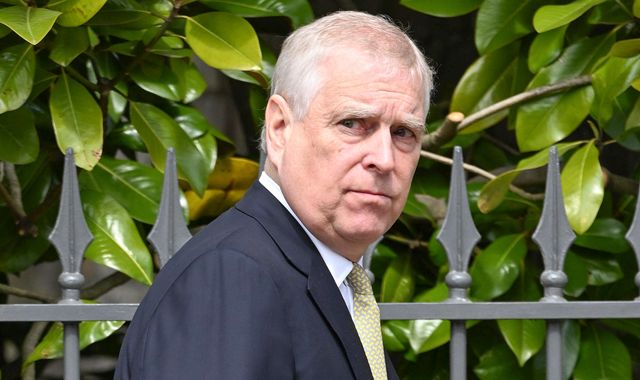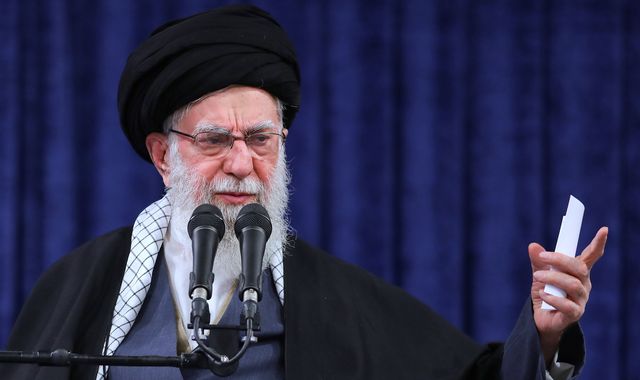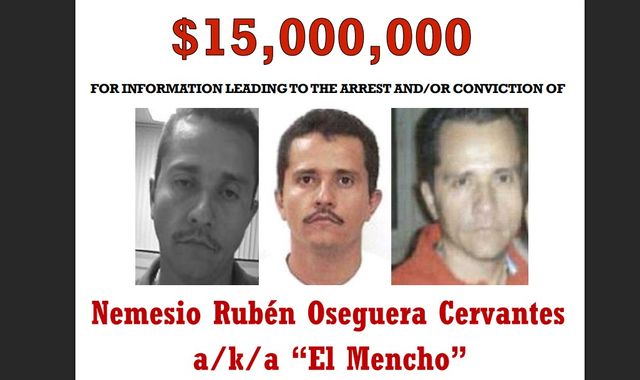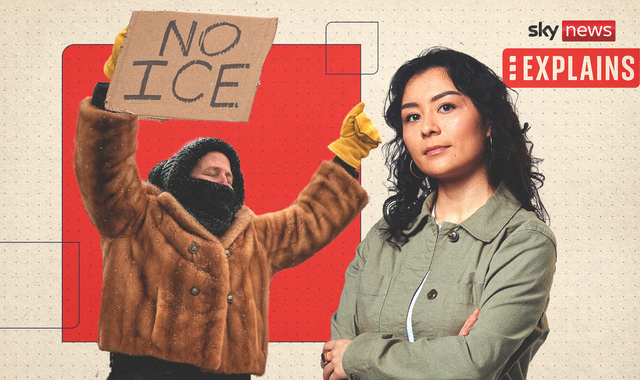
No Writer
Feb 22
Call for 'treason' probe into Andrew's Epstein links - as searches at ex-duke's former home continue
Tom Tugendhat has suggested a parliamentary probe into Andrew and Peter Mandelson's links to Epstein, telling The Sun on Sunday: "This goes beyond what a court could reasonably consider. Parliament must consider what it means for the country. "If the worst is proved, do we need to revisit treason laws written 700 years ago?" Education Secretary Bridget Phillipson suggested the UK government is open to taking further steps regarding the fallout from Andrew's arrest. "We're not ruling anything out around this," she told Sunday Morning with Trevor Phillips. She also said the government would look "at any sensible proposals" when asked about the possibility of an independent judge-led inquiry. But, Ms Phillipson added, the government would not be setting out further steps until police "have been able to do their work", with a live investigation under way. Ms Phillipson confirmed the government will "keep available" the option of removing Andrew from the royal line of succession, plans which had emerged on Friday. Reform UK's Treasury spokesman Robert Jenrick will support a possible government bill to remove Andrew from the line of succession, he told Sunday Morning with Trevor Phillips. "If the government brings forward this bill with the support of the King, then we will back it," Mr Jenrick said. He also said he was open to a parliamentary probe into both Andrew and Mr Mandelson, who is being investigated for potential misconduct in public office. "The King serves this country extremely well," Mr Jenrick said but added that Andrew had "disgraced the Royal Family, and he's disgraced our country in the process". "And whatever happens, whether he's ultimately prosecuted or not, he should now just go off, lead a private life and allow the King and the rest of the Royal Family to continue doing the good job that they do for us." Read more: What exactly is misconduct in public office? The Sunday Times reported Metropolitan Police officers assigned to Andrew were instructed to provide security for a dinner party at Epstein's residence in New York in 2010. The newspaper cited emails from the Epstein files that appear to detail arrangements for Andrew to stay with the late paedophile financier in December 2010, along with his two protection officers from the Met Police. Police said they have not identified any wrongdoing by the protection officers at this stage. Asked to respond to Sunday's reports, the Met Police said it had no further comment. Read more from Sky News:Three dead and four others injured in crashTrump sending 'great hospital boat' to Greenland Royal biographer and historian Andrew Morton told Sunday Morning with Trevor Phillips the fallout surrounding Andrew could have particularly grave consequences for the Royal Family because there is "no end in sight". Mr Morton, who wrote a biography of the late Princess Diana, said there was very little the King could do to stop the fallout, as he publicly let the police lead on the matter, and there was now "blood seeping under the doorway on a regular basis". Mr Morton said he expected police investigating Andrew would have looked at "the money trail" - including Sarah Ferguson borrowing money from Epstein. "The money side of things will be, I would have thought, front and central in this investigation," he said. Mr Morton added: "This is a turning moment for the monarchy." Thames Valley Police has said the searches at Royal Lodge in Windsor would continue until Monday. On Sunday, images showed cars with police officers still moving in and out of Royal Lodge, a few miles from Windsor Castle. The former prince was arrested on Thursday, with Thames Valley Police later releasing a statement saying it had "arrested a man in his sixties from Norfolk on suspicion of misconduct in public office". Andrew was released from the Aylsham police station after 11 hours of questioning. Andrew has always strenuously denied any wrongdoing.

Diana Magnay, international correspondent
Feb 22
As protests resume in Tehran, Iran's regime may be ready to strike a deal with Trump
Pro-and anti-regime activists protested at five universities in Tehran on Saturday, in some instances facing off against each other. At the Ferdowsi University in Mashhad, Iran's second city and birthplace of Ayatollah Khamenei, video shows a large gathering of anti-regime protestors chanting "so much crime all these years" and "death to this rule". These demonstrations are nowhere near the scale of the protests six weeks ago which saw uprisings in towns and cities across all Iran's 31 provinces, but it is brave to be coming out at all given the authorities' crackdown in January. The numbers killed then are still unclear, but the US-based Human Rights Activists Agency (HRANA) says they have verified at least 7,015 fatalities and have thousands more cases under review.The government has admitted to 3,117 deaths including around 200 security personnel. Donald Trump has said he believes 32,000 people were killed. The 40th day is an important moment in the mourning process in Iran. During the revolution in 1979, 40th day commemorations became flashpoints for fresh protest, sparking renewed crackdowns and killings and further cycles of unrest. As a result, the Iranian regime has been wary of allowing mourners to gather for commemorative rituals. Last week, clashes around the 40th day took place in Abdanan, a city near the border with Iraq. Videos show people chanting "death to Khamenei" as they remembered Alireza Seydi, a 16-year-old boy killed on January 8th. In another video from the city, the sound of gunfire echoes across the valley. It is difficult to tell what exactly the response of the authorities has been to this latest unrest. Internet is back but it is patchy. On Tuesday, the Ayatollah gave a speech saying some of those who took part in the January protests had been "naive and inexperienced" and were deceived by the rioters, but that they were still "part of us, they were our children". Given the US military build-up across the Middle East, the Iranian authorities appear not to want to provoke Donald Trump by being heavy-handed with protesters - but, instead, to focus minds on further negotiations on Iran's nuclear programme which they say could take place next week. Read more:How Iran might be preparing for a potential US strikeUK has not agreed to let US strike Iran from British bases They are signalling that they are prepared to work towards a deal but that they stand ready to fight should the US strike. Now it is up to Donald Trump to decide whether and how long he is prepared to wait for a deal, and what he does if he fails to get one.

No Writer
Feb 22
Trump sending 'great hospital boat' to Greenland to 'take care of the sick'
The US president threatened, at one point, to take the Arctic island by force in the interests of "national security". However, in late January he announced "the framework of a future deal" on Greenland and its security following talks with NATO secretary general Mark Rutte. Now, Mr Trump has claimed he is sending a boat to "take care of the many people who are sick" in Greenland, which has a universal public healthcare system. He announced the plan at a dinner for Republican governors at the White House. Mr Trump posted on Truth Social: "Working with the fantastic Governor of Louisiana, Jeff Landry, we are going to send a great hospital boat to Greenland to take care of the many people who are sick, and not being taken care of there. It's on the way!!!" Louisiana Governor Jeff Landry reposted Mr Trump's message on X - and added: "Thank you, President [Trump]! Proud to work with you on this important issue!" The US Navy has two hospital ships, the Mercy and the Comfort, which support forces on deployments and provide disaster and humanitarian relief. The White House and Mr Landry's office have not made any further comment on the post - or revealed whether the ship had been requested by Denmark or Greenland. Denmark's prime minister, Mette Frederiksen, said in a Facebook post on Sunday that she was "happy to live in a country where there is free and equal access to health for all. Where it's not insurance and wealth that determine whether you get proper treatment". "You have the same approach in Greenland." Aaja Chemnitz, one of the two Greenlandic politicians in the Danish parliament, wrote on Facebook: "Donald Trump wants to send a hospital ship to Greenland. "It seems rather desperate, and does not contribute to the permanent and sustainable strengthening of the healthcare system that we need." Read more:NATO starts mission to strengthen presence in ArcticWhy Trump has insisted the US 'needs' Greenland Denmark maintains control of the territory's foreign affairs and defence. Troels Lund Poulsen, the country's defence minister, told Danish broadcaster DR on Sunday that the ship was not needed. "The Greenlandic population receives the healthcare it needs," said Mr Poulsen. Mr Trump's post came hours after Denmark's Joint Arctic Command said it had evacuated a crew member of a US submarine off the coast of Greenland after the person needed medical treatment. The submariner was retrieved by a Danish Seahawk helicopter that had been deployed on an inspection ship.

No Writer
Feb 22
Cheapest day to travel has changed - and it could save you 18% on flights | Money newsletter
In the next edition, we reveal the cheapest day to fly on holiday with savings of up to 18% (and the day has changed from last year). Every week subscribers get early access to our Money Problem feature, weekend long reads and, in our popular Money in your pocket section, a rundown of the best deals currently on the market for broadband, mortgages, savings, bank switching and energy. So join our growing Money community - and thanks to the tens of thousands of you who already have.

No Writer
Feb 22
Three dead and four others injured in crash, says Police Service of Northern Ireland
The collision happened in the Armagh Road area of Moy at around 10.20pm on Saturday, the Police Service of Northern Ireland (PSNI) said. A 23-year-old woman and two men, aged 31 and 48, died at the scene. Four other people were injured, three of whom are receiving medical treatment. The crash involved a red BMW, a grey Volkswagen and a white Audi, police said. Fermanagh and South Tyrone MLA Diana Armstrong described it as "a very dark day for families who have been plunged into shock and mourning". Ms Armstrong said she is sending out her "deepest sympathies and sincere condolences", adding they must be "totally at a loss to comprehend the scale of this tragedy".The Ulster Unionist Party deputy leader said: "The toll of the loss of life in this incident has shocked the local community and many will be holding those impacted in their thoughts and prayers today."My thanks go to the PSNI and emergency services who attended the scene and transferred those affected for medical treatment." SDLP Armagh councillor Thomas O'Hanlon said in a statement: "Three families and their wider communities have been plunged into deep grief. "There are truly no words that can ease such pain, other than to offer our thoughts and prayers at this incredibly difficult time." He also offered his condolences to the "first responders from all emergency services who attended the scene and were faced with such harrowing circumstances". Read more from Sky News:Man stabbed to death at skate park namedGirl and woman die in crash Police say enquiries are ongoing and have asked anyone who was in the area and witnessed the incident to contact them. The Armagh Road at Moy remains closed.

No Writer
Feb 22
Mexican drug lord 'El Mencho' killed in military operation
The leader of the Jalisco New Generation Cartel, whose real name is Nemesio Ruben Oseguera Cervantes, died on Sunday. Oseguera Cervantes was wounded in an operation to capture him in Tapalpa, Jalisco, around two hours' drive southwest of Guadalajara, on Sunday, the Defence Department said in a statement. He died while being flown to Mexico City, the statement added. The state is the base of the cartel known for trafficking large quantities of fentanyl and other drugs to the US. During the operation, troops came under fire and killed four people. Three others, including Oseguera Cervantes, were wounded and later died, the statement said. Two more people were arrested, and armoured vehicles, rocket launchers and other firearms were seized. Three members of the armed forces were also wounded in the operation. The killing of Oseguera Cervantes set off several hours of roadblocks, with vehicles torched in Jalisco and other states. Such tactics are commonly used by the cartels to block military operations. Videos posted on social media showed plumes of smoke billowing over Puerto Vallarta, a major city in Jalisco, and people running through the airport of the state's capital in panic. The US State Department warned US citizens in Jalisco, Tamaulipas, Michoacan, Guerrero and Nuevo Leon states to remain in safe places while security operations are carried out. On Sunday, United Airlines said it had cancelled flight operations to Puerto Vallarta and Guadalajara. American Airlines told Reuters in a separate statement it has cancelled flights to and from PVR and GDL for the remainder of Sunday. Air Canada said it was suspending flights to Puerto Vallarta "due to an ongoing security situation". Read more from Sky News:Iran's regime may be ready to strike a deal with TrumpVirtual reality offers escape to Gaza's children US Deputy Secretary of State Christopher Landau called the drug lord's killing a "great development for Mexico, the US, Latin America, and the world". Posting on X, Mr Landau added: "I'm watching the scenes of violence from Mexico with great sadness and concern." The US State Department had offered a reward of up to $15m for information leading to the arrest of El Mencho. Oseguera Cervantes has been heavily involved in drug trafficking since the 1990s. He was convicted of conspiracy to distribute heroin in the US District Court for the Northern District of California in 1994 and spent almost three years in prison. Following his release from custody, Oseguera Cervantes returned to Mexico and continued drug trafficking operations. Since 2017, he has been indicted several times in the United States District Court for the District of Columbia. The Jalisco New Generation Cartel is one of the most powerful and fastest-growing criminal organisations in Mexico. In February, the Trump administration designated it as a foreign terrorist organisation. The cartel carried out a daring assassination attempt in 2020 with grenades and high-powered rifles against the then-head of the capital's police force, who is now head of federal security, in the heart of Mexico City. The DEA considers it to be as powerful as the Sinaloa cartel, one of Mexico's most notorious criminal groups. The cartel has a presence in all 50 US states and is believed to be one of the leading suppliers of cocaine to the US market. Like the Sinaloa cartel, it earns billions of dollars from the production of methamphetamines and fentanyl.

No Writer
Feb 22
Why context matters – Sky News Explains YouTube series relaunches
In each episode of the new long-form series, our reporter Olive Enokido-Lineham will break down one topic and get to the context behind the story. She'll be speaking to our correspondents from around the world and experts on that particular topic. Watch our full episode at the top of this article. Before re-launching Sky News Explains, Olive specialised in verification and open-source investigations (OSINT). Her stories include investigations into the war in Gaza, to verifying videos from Ukraine and Syria. Olive also produced the Sky News documentary Escaping Putin, which follows a Russian soldier who fled from the army and the anti-war activists behind it. For the first episode of Sky News Explains, Olive looks at how Donald Trump reinvented the US immigration agency ICE. ICE has been in the news for months, but the agency itself is over 20 years old. Olive looks at who ICE are, how their tactics have changed and why Trump has given them so much money and power. In the episode, Olive analyses footage of ICE agents and data. She talks to former ICE acting director John Sandweg, and two of our US correspondents Mark Stone, in Washington DC and Martha Kelner - who reported from Minneapolis following the shooting of Renee Good.

Gemma Peplow, culture and entertainment reporter
Feb 22
BAFTAs red carpet 2026: All the fashion from British and Hollywood stars
Emma Stone, Kate Hudson, Leonardo DiCaprio, Jessie Buckley, Teyana Taylor, Timothee Chalamet, Michael B Jordan, Carey Mulligan and Rose Byrne were among the stars on the BAFTA Film Awards red carpet this year. One Battle After Another was the big winner, with acting prizes for Buckley and British rising star Robert Aramayo. Here are all the outfits as the stars arrived ahead of the ceremony.

No Writer
Feb 22
Prince William pays tribute to TikToker army medic following her death aged 25
Corporal Lucy Wilde, 25, who documented her fitness routines and daily life on the social media platform, was reportedly found dead at her barracks in Warminster, Wiltshire, on 5 February. The Prince of Wales, colonel of the Welsh Guards, was struck by the "warmth and compassion" of Cpl Wilde, of the Royal Yorkshire Regiment, when he met her in 2024. "It was with immense sadness that I learned of Cpl Lucy Wilde's death," said the prince. "I remember our meeting during her time with the Welsh Guards, where her warmth and compassion were unmistakable." "She served with courage and distinction as a medic and sought always to help others. I send my heartfelt condolences to her family and friends." The Ministry of Defence said the circumstances surrounding Cpl Wilde's death were being investigated, it was reported. Cpl Wilde was previously attached to the Welsh Guards. In a statement, the regiment said: "It is with deep sadness that the Welsh Guards mark the passing of Corporal Lucy Wilde. "Lucy was attached to the battalion until Christmas, before moving on to her next posting with the 2nd Battalion, Royal Yorkshire Regiment. "In the short time she spent with us, she quickly became part of the Welsh Guards family - not just as an exceptional medic, but through the bonds of friendship she formed in the Welsh Guards, along with the warmth, humour and professionalism she brought to all who worked with her. "She was known for her calmness under pressure, tireless care for others, and unwavering commitment to her role." Read more from Sky News:Bodies found in North Wales mountain rangeCharles Bronson vows to 'expose unlawful sentence' Cpl Wilde was commended after being first on the scene of a "mass casualty" incident in the Falklands when a vehicle overturned, injuring a number of Welsh Guards. "Lucy was first on the scene, and worked relentlessly to treat casualties and ensure every Guardsman was accounted for and safe," the statement added. "Her actions that day were nothing short of outstanding, and she was rightly commended for her courage and professionalism. "Lucy had a rare ability to lift those around her. She was popular, genuine and deeply respected. Her loss is felt across the battalion and far beyond."

Lucy McDaid, political correspondent
Feb 22
The pressure is building on government to reform student loan repayments
According to one Labour MP, it's "the next welfare waiting to happen", implying the government could have another rebellion on its hands if it doesn't act quickly. So, will it act? Well, Education Secretary Bridget Phillipson hasn't ruled out any changes and government sources aren't steering away from the idea that they are putting their heads together. Explainer: How to avoid crippling student debt That's despite refusing suggestions to lower repayments when speaking to Sky News on Sunday Morning with Trevor Phillips. Also, they're all too aware of the changing political landscape, with the Greens and Your Party increasingly positioning themselves as the alternatives to Labour. What exactly is the row about? It centres around Plan 2 loans. These were issued to undergraduate students who started uni from 2012, when fees went up to £9,000 a year, up until 2023. Graduates currently pay back 9% of their income when they earn above the current £28,470 threshold, and then interest is charged at the rate of Retail Prices Index (RPI) plus up to 3%, depending on salary. It's led to many seeing their debt increase years after leaving university, despite already having paid off thousands of pounds. The issue has been debated for a long time, but erupted again after the chancellor's budget last November. In it, Rachel Reeves said the repayment threshold in England will be frozen for three years from April 2027. The Welsh government has decided not to follow suit. This means that workers earning more than the threshold will be dragged into making larger repayments than they would be if the threshold rises with inflation. Analysis: Uni is not what it once was Parties pile pressure on Labour What's not helpful for Labour is that other parties are now piling on the pressure. The Conservatives have said they'd cut the amount of interest on the loans, while the Liberal Democrats are more generally promising to review the fairness of the system. Meanwhile, Green MP, Dr Ellie Chowns, said in a statement that the current system for student loans was "clearly unfair" and the "Greens want to see tuition fees scrapped entirely and ultimately would write off existing undergraduate and PCDL [Professional Career and Development Loan] debts". She added the party would support a series of immediate measures, including reversing the adjustment to repayment thresholds, reducing interest on loans and lowering the repayment rate. Read more:Call for change to loan paymentsInvestigation into student loans fraudUniversity tuition fees to increase But - as the government keeps reminding us - cash is in short supply, and all this comes at a time of renewed calls to increase spending on defence, in the face of global volatility. Charities and opposition parties also want to see how the Department for Education plans to fund its much-anticipated reforms to SEND provision, for example. Bridget Phillipson speaks about having to identify 'priorities' in government, but we could see ministers having to change course quickly on this issue if it unravels further into a political pile-on.

